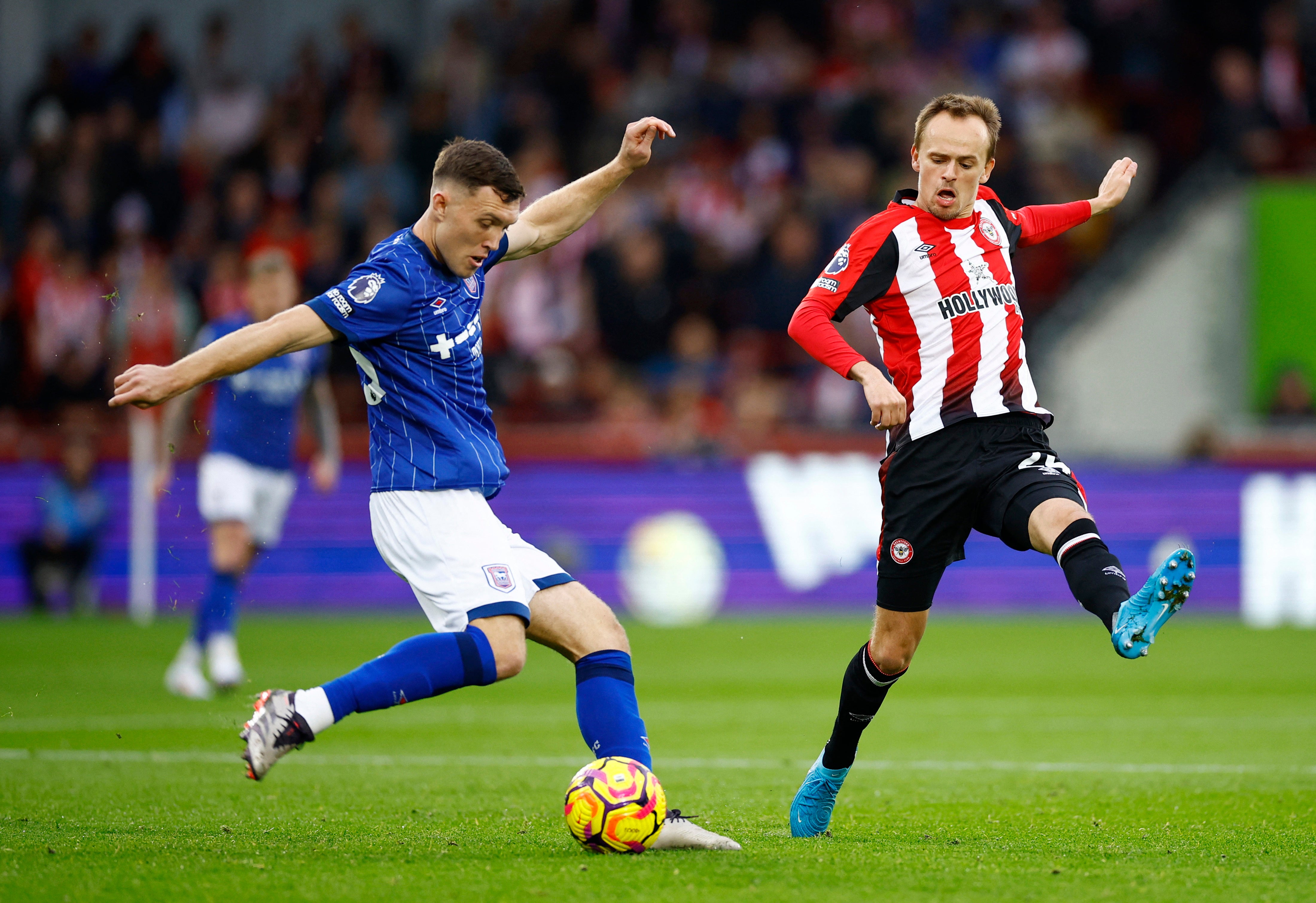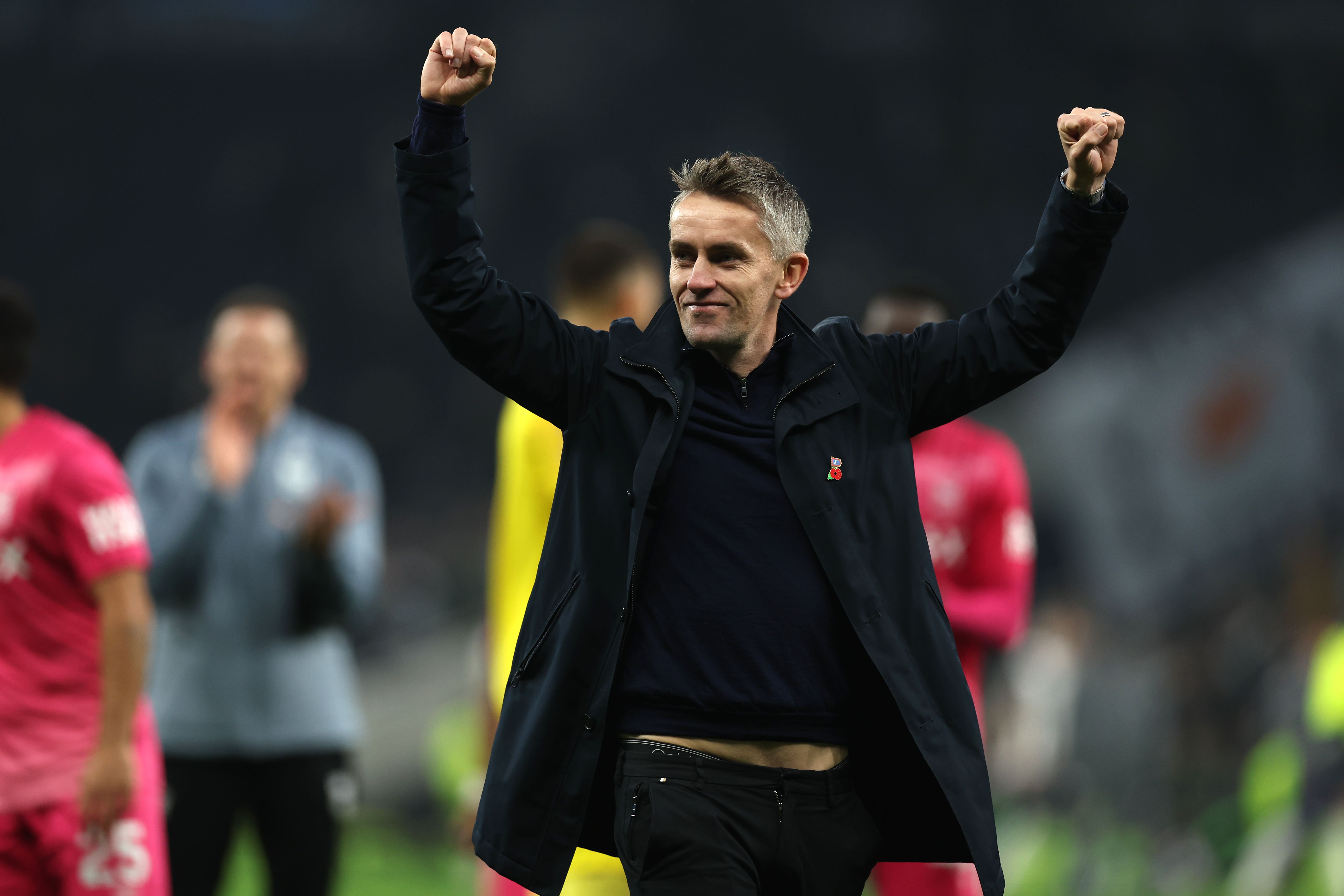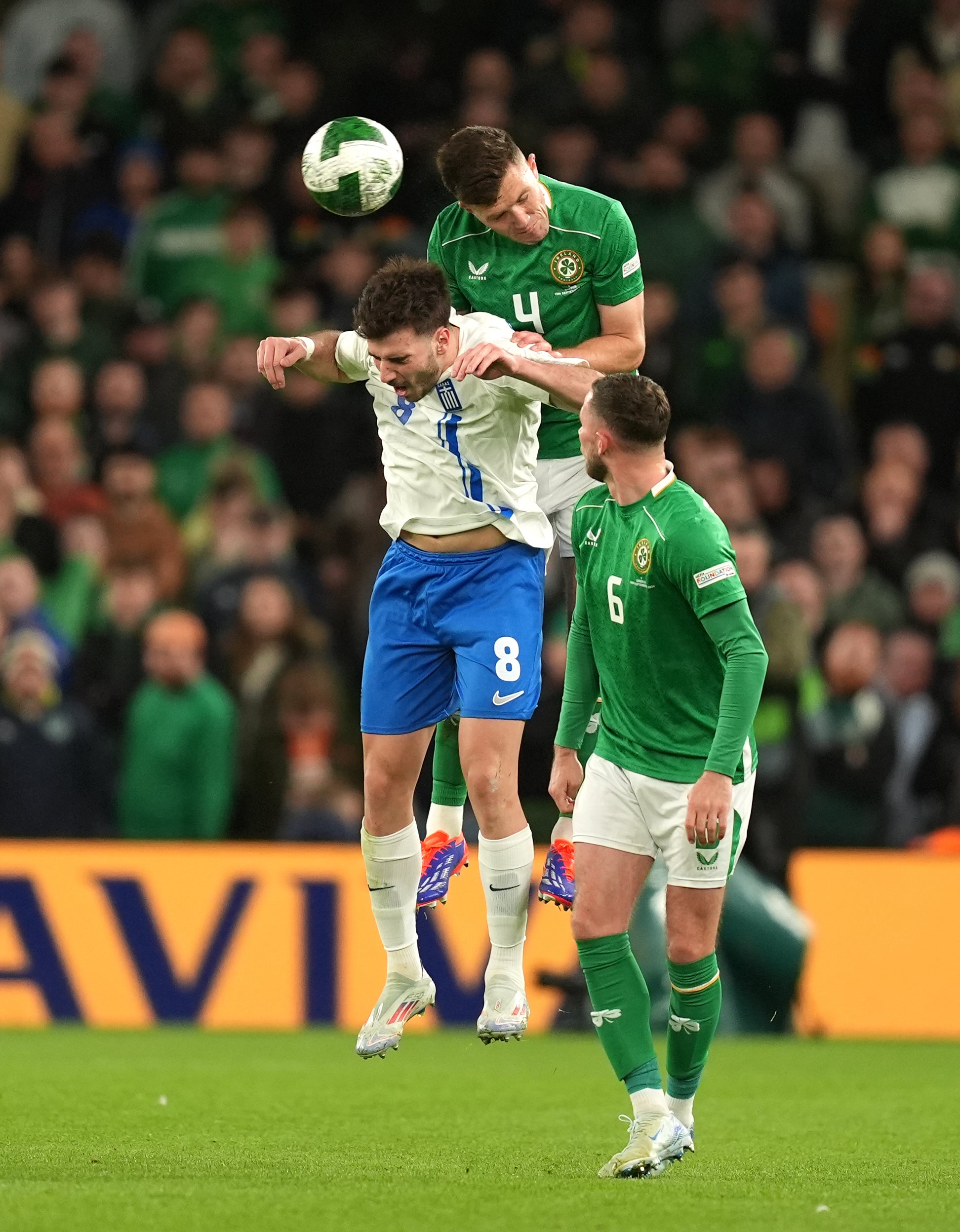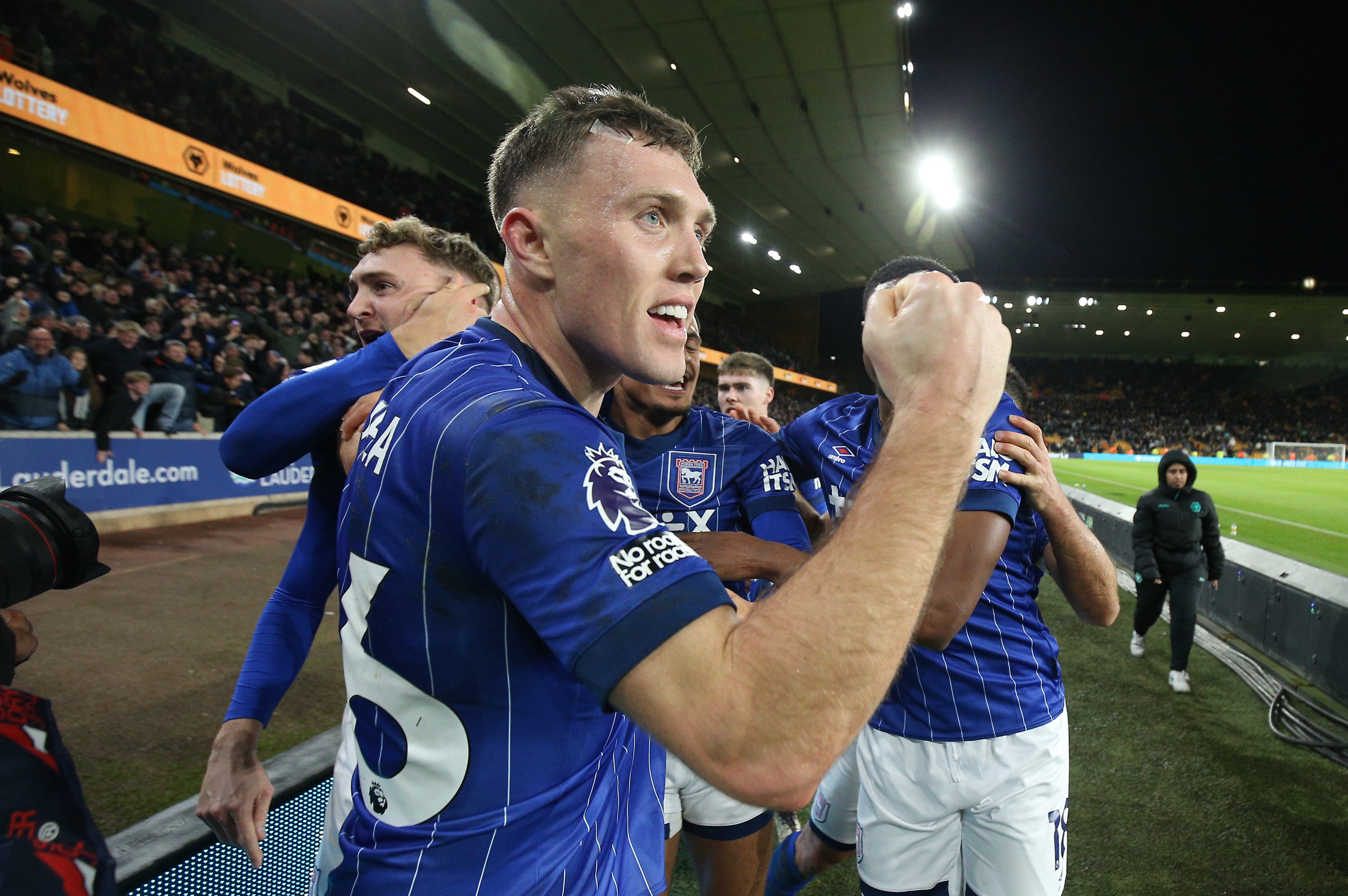
As a player who was clocked as the fourth fastest in the Premier League last season, Dara O’Shea relishes it “when I’m up against a striker and it’s me and him”. The Ipswich Town defender doesn’t, however, necessarily love what the races mean.
“Obviously, I am quick, but I don’t really want to use my pace because I’m using it in a way where, nine times out of 10, I’ve been in the wrong position.”
It’s a modern spin on an enjoyably old-fashioned sentiment. O’Shea laughs when the vintage Paolo Maldini line is put to him, that if you have to make a tackle you’ve already made a mistake.
“Yeah, if you come off and your shorts are dirty, you’ve made a few mistakes!”
That fine line between relish and tactical responsibility is all the tighter in a system as proactive as Ipswich’s, and under a manager as perceptive as Kieran McKenna.
“The gaffer will point out, if you were like a yard there or two yards there, the whole passage of play is different,” O’Shea enthuses. “To have someone like that, it keeps us all on the same page.”
O’Shea uses the last four words a lot when discussing Ipswich, but it’s made good reading for him. The 25-year-old quickly got both the club and the team’s idea on moving from Burnley in the summer, to the point he was already putting in eye-catching displays after just a few games. O’Shea has been commanding at the back while helping Ipswich launch so many of those lively attacks with his searching passes. He is one of a few signings to have made the team admirably competitive, when many expected McKenna’s side to drop straight back down.
Some of that shouldn’t be a surprise, given the consideration that O’Shea put into his future. The Dubliner had approaches from Wolves and Brentford in the summer but chose Ipswich due to the excitement around the club from rising out of League One, as well as the man most responsible: McKenna.
“Even on the first day, it was a different feeling to clubs I’d been at before. I probably didn’t realise the magnitude until I came here just because, growing up, Ipswich were never really in the Premier League. Obviously, when I came here I realised how big a club, how good the fans are, how happy the fans are, and there's a lot of admiration for the group.

“There was obviously the journey they’ve been on and the gaffer.
“That’s why they’ve done so well as a group, because they have those same beliefs and values the club had in League One.
“The club wanted me a lot and the gaffer made that clear. I’ve now come to learn the best place to be is where they want you most, and that’s where you flourish.”
There was also the clarity of McKenna’s idea.
“It’s how he plays the game and sees the game. After working with various managers, I have an idea of how I think football should be played, and that’s how he plays football, so that’s what I enjoy. I think that’s important. To buy into a system yourself is massive.”
It isn’t just the way McKenna plays, though. It’s the way he does the rest of it, too.
“He’s probably one of the best managers I’ve had as a man-manager. I think he gets it. I’ve had managers before who just don’t speak to you, and it almost has you scratching your head. Because, as a footballer, you’re so lonely at times.”
It’s a notable phrase, that invites more questions given the hundreds of millions that watch the Premier League. That’s part of the point.

“Obviously, football is quite a black and white sport in a way, great when you’re playing well, and then when you’re not playing well or not playing… it’s really tough, and there’s no in between. I had it at Burnley at the start of last season, where I was taken out of the team and wasn’t spoken to. You’re just looking for that reason.
“So that bit of clarity, even if it’s needing to have a dig out, you need that at times. You need to understand where you stand and I think he’s really good at that. He has been for me. Communication is obviously massive in football, to play your best football. I always say you need to have a clear mind and just know what you need.”
O’Shea feels it’s all the more important to Ipswich’s competitiveness, as it keeps them – that phrase again – “on the same page” in terms of commitment as well as tactics. The team are so well drilled that even those on the sidelines for a while, like O’Shea’s various centre-half partners, are ready and willing to come into the team.
“We’ve been in every game. And look, I’ve been on the other end at Burnley where I’ve been wiped out by teams in the first 20, 30 minutes. But here it’s quite different, and that feeling within the group, even though we probably haven’t got the points to show for it, we’ve caused a lot of teams problems. You hear it from other players after the game: ‘You boys are tough to play against’. We’re one of the hardest-working teams in the league and I don’t think other teams will enjoy coming up against us this season.”
Newcastle United may find that on Saturday.

It’s also why their first win, 2-1 away at Tottenham Hotspur, was so satisfying.
“One of the hardest-working teams as well, to just run all over them and show what we were about was nice,” O’Shea says when recalling the game.
It’s why O’Shea’s attitude has fitted so well with McKenna’s.
“I love the battle most. My mentality as a player is that I just want to win my battle and I don’t want to let them get one better than me. I’ve had it a lot in recent weeks where we’ve gone a bit man to man and stuff like that.”
O’Shea actually puts it down to his background in Ireland, and playing Gaelic football with local club St Jude’s.
“I think that is the Gaelic in me coming out; you have your man, you stick to him and that’s that. A huge part of how I play is that front-foot mentality, wanting to get to the ball first, not being afraid to put your body there. It’s definitely helped me.”
O’Shea was actually so good that it was considered likelier he’d play for Ireland’s repeat Gaelic football champions, Dublin, than be a professional footballer. He continued to play for St Jude’s right up to joining West Brom as a 16-year-old.

“I played right up to the end, county final,” he says. “If something went wrong, it wouldn’t have been the wisest decision!”
O’Shea is particularly proud of being Irish, having been such a committed matchgoing fan of the national team that he followed them to Euro 2016 with his family. The win against Italy, settled by current international teammate Robbie Brady, brought “one of the best weeks of my life... it’s unmatched”.
He finds it funny now that there’s such an Irish contingent at Portman Road, including the manager, that “the lads are calling it Republic of Ipswich or Republic of Town!”.
O’Shea believes that will only aid Heimir Hallgrimsson’s Irish team now. The 2026 World Cup will mark a decade since the country’s last tournament qualification.
Like with everything else, though, O’Shea relishes the challenge.







